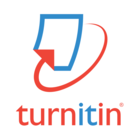Coffee Chemistry, as Microlearning Content for Public Courses at Universities’ MOOC System, A Preliminary Attempt
Abstract
An attempt to have a scientific course for the public from higher education institutions was done by preparing a good set of contents for one particular topic of interest, which is also a science topic. Coffee chemistry is the topic chosen and some content was developed, including videos, audio-embedded social media, infographics and motion graphics packed with 8 topics. The choice of coffee amongst many sciences’ topic is considered strategic in bringing science to all audiences of society. Science content must explain nature as the object in wholistic concepts, starting from smaller parts of each division, including chemistry. The microlearning approach is employed in the MOOC platform from The State University of Malang, Indonesia. This also is one of the three main tasks of higher education institutions which can be delivered in the MOOC system.
Keywords
Full Text:
PDFReferences
K. Schwab, The Fourth Industrial Revolution. Geneva: World Economic Forum,
R. D. Garrison and N. D. Vaughan, Blended Learning in Higher Education. 2007.
S. Wonorahardjo, “Fokus Tri Darma Perguruan Tinggi,” Kompas Siang, Jakarta, 06-Mar-2014.
N. Pellas, I. Kazanidis, N. Konstantinou, and G. Georgiou, “Exploring the educational potential of three-dimensional multi-user virtual worlds for STEM education: A mixed-method systematic literature review,” Educ. Inf. Technol., pp. 1–45, 2016.
K. B. Carbonell, A. Dailey-hebert, and W. Gijselaers, “Internet and Higher Education Unleashing the creative potential of faculty to create blended learning,” Internet High. Educ., vol. 18, pp. 29–37, 2013.
K. Bohle Carbonell, A. Dailey-Hebert, and W. Gijselaers, “Unleashing the creative potential of faculty to create blended learning,” Internet High. Educ., vol. 18, pp. 29–37, Jul. 2013.
J. Dyer, H. Gregersen, and C. M. Christensen, The Innovator ’ s DNA. Boston: Harvard Business Review P, 2012.
R. P. Redondo, M. C. Rodriguez, J. J. Escobar, and A. F. Vilas, “Integrating micro- learning content in traditional e-learning platforms,” Multimed. Tools Appl., vol. 80, pp. 3121–3151, 2021.
M. S. Shail, “Using Micro-learning on Mobile Applications to Increase Knowledge Retention and Work Performance : A Review of Literature,” vol. 11, no. 8, 2019.
M. A. Job and H. S. Ogalo, “Micro Learning As Innovative Process of Knowledge Strategy,” Int. J. Sci. Technol. Res. Vol., vol. 1, no. 11, pp. 92–96, 2012.
S. Wonorahardjo and I. W. Dasna, “MOOC untuk Kegiatan Pengabdian pada Masyarakat di Universitas Negeri Malang,” in Prosiding Seminar Nasional Pengabdian kepada Masyarakat (SINAPMAS), 2021.
S. Wonorahardjo, Iw. Dasna, and S. Suharti, “Exploring the Ethics and Environmental Impact of Chemistry,” 2022.
S. Wonorahardjo, S. Suharti, and I. W. Dasna, “From chemistry back to nature , an ethical perception of chemists,” in AIP Conference Proceedings, 2021, vol. 02004, no. March.
E. al. Bachtiar, Alfitrah, Kopi Dari Hulu Ke Hilir, Kajian Proses Kopi Ditinjau Dari Ilmu Kimia. Malang: Lembaga Pengembangan Pendidikan dan Pembelajaran, UM, 2020.
S. Wonorahardjo, Kimia Kopi, Monograf Disruptive Masyarakat Modern. Malang: Wineka Media, 2021.
M. I. Dorfsman, “The development of discourse in the online environment : between technology and multiculturalism,” 2018.
S. Wonorahardjo, N. Yuniawati, and A. D. P. Molo, “Different Chemical Compound Profiles of Indonesian Coffee Beans as Studied Chromatography / Mass Spectrometry,” IOP Conf. Ser. Earth Environ. Sci., vol. 276, p. 012065, 2019.
S. N. Fadilah, S. Wonorahardjo, S. Marfu’ah, and S. Wonorahardjo, “Edu- Kit ‘ Our Coffee ’ Development on Problem Based Learning Model for Vocational Agribusiness and Agrotechnology Programs on Material Separation Mixture,” Int.
J. Interact. Mob. Technol., vol. 14, no. 12, pp. 41–53, 2020.
A. Korkmaz and W. S. Harwood, “Web-Supported Chemistry Education: Design of an Online Tutorial for Learning Molecular Symmetry,” J. Sci. Educ. Technol., vol. 13, no. 2, pp. 243–253, 2004.
W. Hung, “Theory to reality: A few issues in implementing problem-based learning,” Educ. Technol. Res. Dev., vol. 59, no. 4, pp. 529–552, 2011.
J. Sjöström and V. Talanquer, “Humanizing chemistry education: From simple contextualization to multifaceted problematization,” J. Chem. Educ., vol. 91, no. 8, pp. 1125–1131, 2014.
Z. Akyola, D. R. Garrison, and M. Y. Ozdena, “Development of a community of inquiry in online and blended learning contexts,” vol. 1, pp. 1834–1838, 2009.
J. Sjöström, “Towards Bildung-Oriented Chemistry Education,” Science and Education, vol. 22, no. 7. pp. 1873–1890, 2013.
DOI: http://dx.doi.org/10.17977/um047v30i12023p32-36
Refbacks
- There are currently no refbacks.
Copyright (c) 2023 Surjani Wonorahardjo, Neena Zakia, Hanumi Oktiyani Rusdi, Irma Kartika Kusumaningrum

This work is licensed under a Creative Commons Attribution-ShareAlike 4.0 International License.
INDEXED BY | TOOLS | PLAGIARISM CHECK | ARTICLE TEMPLATE |
| Research Article Non Research Article |

JPP (Jurnal Pendidikan dan Pembelajaran) is licensed under a Creative Commons Attribution-ShareAlike 4.0 International License










_2.png)
_.png)